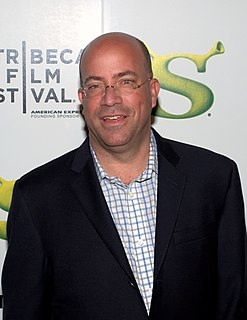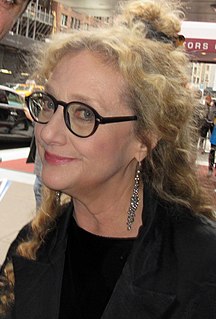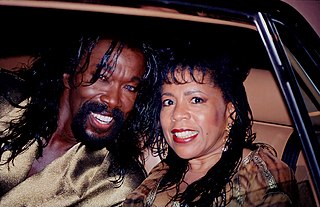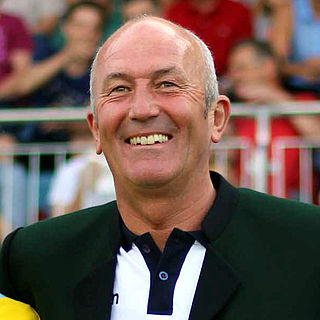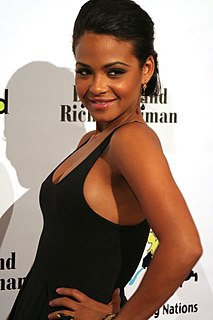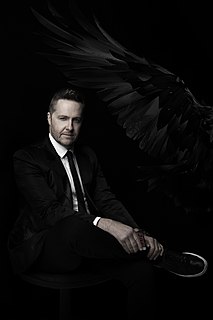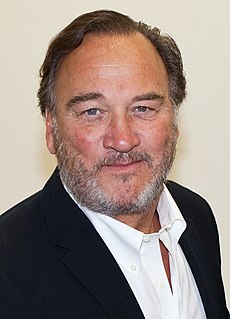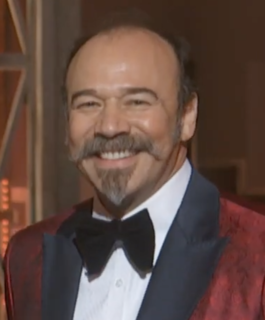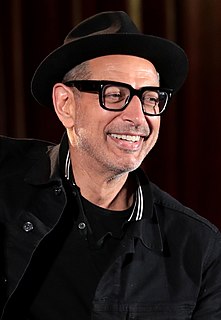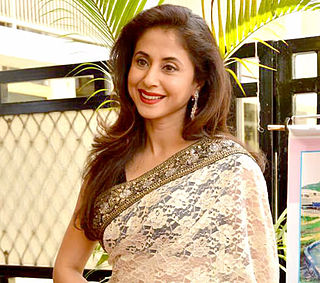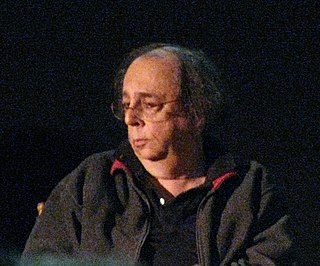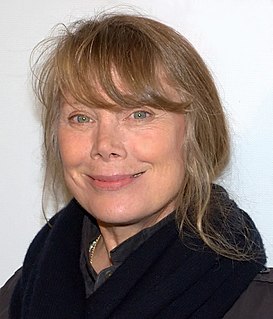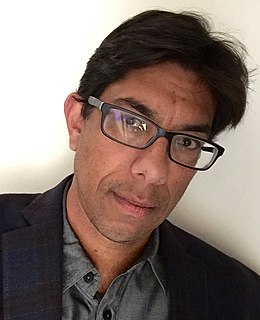Top 1200 Live Audience Quotes & Sayings - Page 16
Explore popular Live Audience quotes.
Last updated on November 12, 2024.
When a character has as wide an audience and as rich a history as Batman, it's truly exciting to see him introduced into an all-new storytelling medium. BATMAN LIVE will bring a completely new experience to fans of the character - it's great to be able to give them something they haven't seen before.
To be an actor is to be ambiguous in every form, which is a very hard way to live. You represent desire: the desire of the director and the desire of the audience, even if it's a subconscious desire. If a director is to work with you for two months, he must be in love with you in some way or another.
The only way to resonate at a level that persuades is to know who you are addressing. If it's true that the Audience is the hero, you need to spend time thinking about them. Really getting to know them to the point it feels like they are a friend. May times we picture our audience as a large clump of strangers. Instead, you need to picture them as individuals standing in line to have a personal conversation with you. It's easy to persuade a friend, you need to think about your audience until you know them as a friend.
The internet's perfect for all manner of things, but productive discussion ain't one of them. It provides scant room for debate and infinite opportunities for fruitless point-scoring: the heady combination of perceived anonymity, gestated responses, random heckling and a notional “live audience” quickly conspire to create a “perfect storm” of perpetual bickering.
Glamour invites us to live in a different world. It has to simultaneously be mysterious, a little bit distant - that's why, often in these glamour shots, the person is not looking at the audience, it's why sunglasses are glamorous - but also not so far above us that we can't identify with the person.
I have no problem with bands using participant financing schemes like Kickstarter and such. I've said many times that I think they're part of the new way bands and their audience interact and they can be a fantastic resource, enabling bands to do things essentially in cooperation with their audience. It's pretty amazing, actually.
I didn't have to win, and winning wasn't important to me. Being world champion wasn't important to me. What was important to me was entertaining the audience, and whether that meant winning, losing, singing, or whatever it was on the live show we were doing every week, which was awesome, I was game for it.
I've done movies with Oliver Stone and Michael Mann. And I've done quite a few dramas in my time, from the theatre to film work. I just think the audience is used to seeing me on 'Saturday Night Live,' and 'K-9,' and 'Curly Sue' and of course, 'According to Jim.' I think that my comedies have been the most popular.
The whole thing about writing a play is that it's all about controlling the flow of information traveling from the stage to the audience. It's a stream of information, but you've got your hand on the tap, and you control in which order the audience receives it and with what emphasis, and how you hold it all together.
What I've discovered is that in art, as in music, there's a lot of truth-and then there's a lie. The artist is essentially creating his work to make this lie a truth, but he slides it in amongst all the others. The tiny little lie is the moment I live for, my moment. It's the moment that the audience falls in love.
In anything really, it's finding the reality. You can't be 'real,' but you can create a reality. And that created reality is what the audience believes in. And that's essential. Because if the audience doesn't believe that, they're never going to trust you. And if they don't trust you, you can't lead them up the mountain.
It's possible I'm a weird person, you know, and if I could only write for people who are like me, I wouldn't have any audience at all. Ultimately, I'm my audience. I'm writing stories for myself. I don't have kids of my own, and I don't hang around kids all that much. Maybe that puts me at a disadvantage.
Before the widespread rise of the Internet and easy publishing tools, influence was largely in the hands of those who could reach the widest audience, the people with printing presses or access to a wide audience on television or radio, all one-way mediums that concentrated power in the hands of the few.
What I find interesting is this ricochet effect, that the audience perceives the work and then does something with it, throws it back to the world, and there's an ongoing interaction between work and audience, which doesn't belong to the artist anymore - from the moment you release it, it doesn't belong to anybody.










